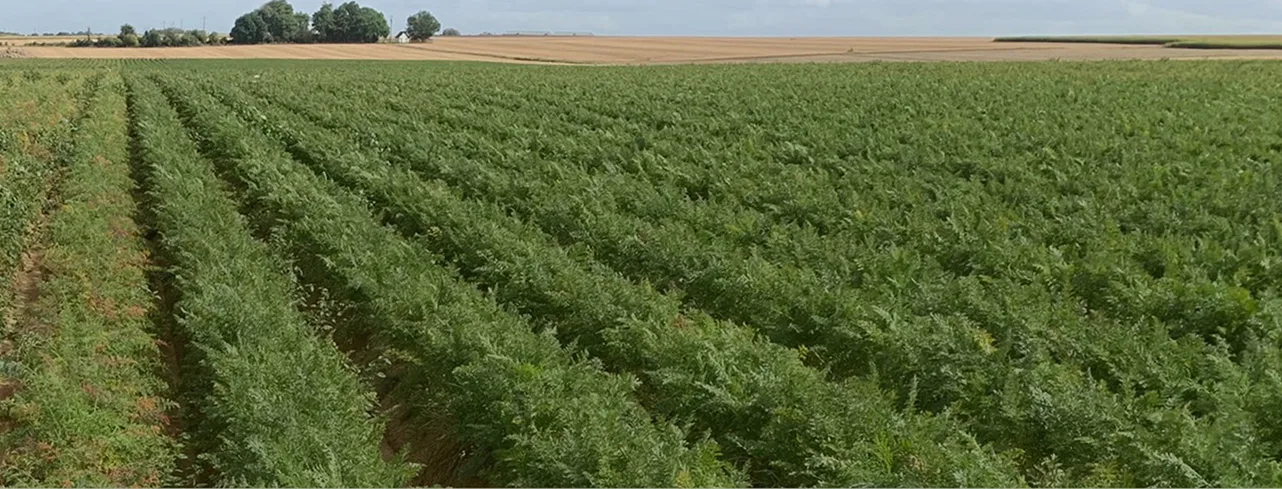Orange carrot
The fundamentals
Produces shades:
Latin name: Daucus carota
Pigment: Carotenes
E-number: not an additive
5 facts about orange carrot
How orange carrot is grown
Orange carrot is a cool-season crop and is always directly seeded in the fields. The seeds germinate in about 3 weeks. They are frost tolerant but are not drought tolerant.
Weather affects length of time to harvest by +/- 3-4 weeks as they are highly dependent on temperature and moisture to develop optimally.
Orange carrot harvest calendar and growing areas
Orange carrot seeds are planted from April to May in Europe and are harvested from September to December.
What you should know about carotene from orange carrot
Oterra's stable, industry-leading formulations allow you to benefit from all of the advantages of orange carrot as a natural food color while minimizing any intrinsic challenges associated with this vegetable.
Orange carrot is the only source of minimally processed carotene. 75% of the pigment is beta-carotene and 25% is alpha-carotene.
Although carotenoids are oil soluble, carotenes from carrots are water dispersible.
Natural Strengths
Good heat and light stability
Unaffected by pH
Low off-flavor
Natural Challenges
Cloudy in transparent applications
Requires ascorbic acid (vitamin C) in high-water activity applications

